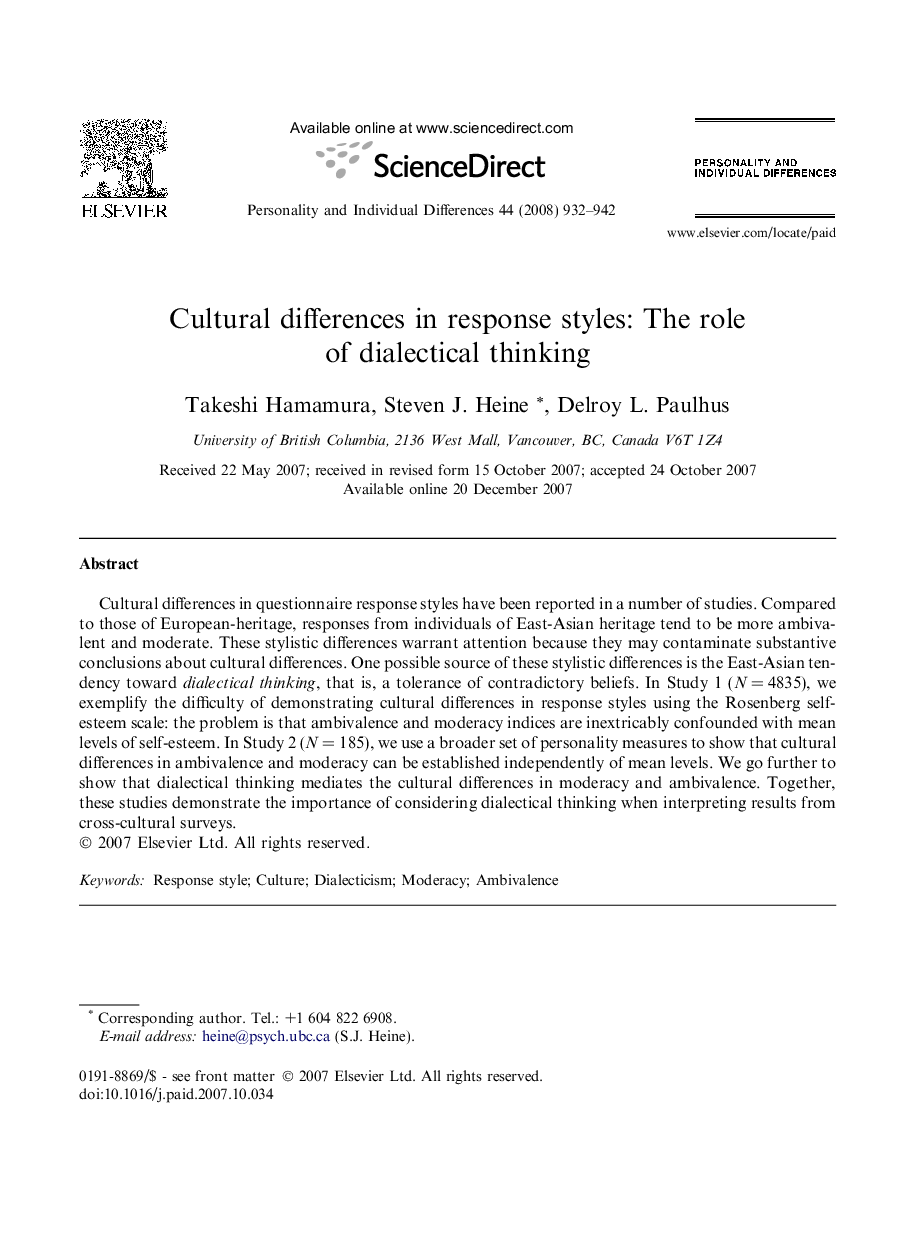| Article ID | Journal | Published Year | Pages | File Type |
|---|---|---|---|---|
| 892782 | Personality and Individual Differences | 2008 | 11 Pages |
Cultural differences in questionnaire response styles have been reported in a number of studies. Compared to those of European-heritage, responses from individuals of East-Asian heritage tend to be more ambivalent and moderate. These stylistic differences warrant attention because they may contaminate substantive conclusions about cultural differences. One possible source of these stylistic differences is the East-Asian tendency toward dialectical thinking, that is, a tolerance of contradictory beliefs. In Study 1 (N = 4835), we exemplify the difficulty of demonstrating cultural differences in response styles using the Rosenberg self-esteem scale: the problem is that ambivalence and moderacy indices are inextricably confounded with mean levels of self-esteem. In Study 2 (N = 185), we use a broader set of personality measures to show that cultural differences in ambivalence and moderacy can be established independently of mean levels. We go further to show that dialectical thinking mediates the cultural differences in moderacy and ambivalence. Together, these studies demonstrate the importance of considering dialectical thinking when interpreting results from cross-cultural surveys.
